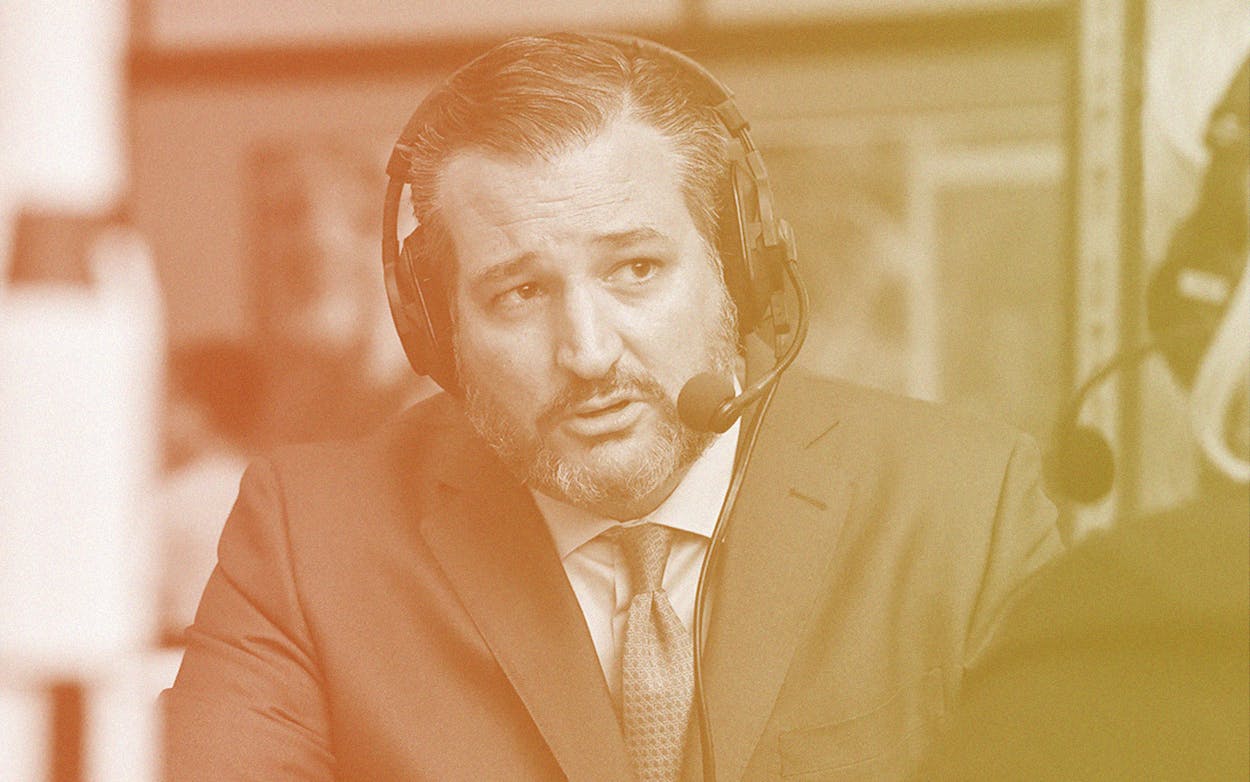Subscribe
Last Wednesday, in the waning days of a month-long congressional recess, Senator Ted Cruz visited with Midland-Odessa city and law enforcement leaders after a mass shooting there left seven dead and 25 injured. The next afternoon, the debate over access to guns was a major focus of our hour-long conversation on the National Podcast of Texas, recorded in his Houston office. The conversation also covers the state of civility, tax reform, why he believes President Trump has been good for Texas, Alex Jones, and the meeting he’ll have Tuesday about guns in Washington, D.C., with actress and activist Alyssa Milano.
Three takeaways from his appearance:
1. After Cruz and Milano put a Twitter spat on pause and agreed to meet to discuss gun violence, Milano tweeted, “If we can talk with mutual respect & humility, maybe all of us come together to effect positive change.” Cruz echoed that sentiment on the podcast.
“Obviously, she and I have very different views. If we demonstrate that we’re able to treat each other with civility and treat each other as human beings, that doesn’t mean we’re going to agree. I don’t expect her to come out and suddenly start saying she’s all in for defending the Second Amendment, and I don’t think she expects me to come out suddenly and say, ‘Let’s confiscate everyone’s guns.’ I don’t think either one of us thinks that’s a likely outcome … But if we can have a sensible conversation about how you actually solve the problem, and you begin from the premise that we want to solve it, I think that’s positive. If you begin from the premise of just screaming at each other, and it’s ‘you’re all just bought and paid for evil people who want to see suffering,’ that’s not a foundation to have common ground or actually to solve problems.”
2. Cruz is offended that there are people offended when politicians extend “thoughts and prayers” after a tragedy.
“One of the things about the left that I find odd is the rage at the concept of prayers. When we have a disaster—whether it is a horrific crime, a natural disaster like it was Hurricane Harvey, tornadoes, or the explosion in West Texas—I will lift up in prayer for anyone who is suffering in the face of tragedy, and I’m not going apologize for that. That’s not the only solution, but particularly online, there is this rage where thoughts and prayers has become this sort of smarmy ‘Ha ha! Prayer doesn’t work,’ kind of thing. One is entitled to believe that if one chooses. I disagree. I believe in the power of prayer that millions of Texans and millions of Americans do as well. And so when people are hurting and suffering, I will certainly lift them up in prayer. And along with the jab at thoughts and prayers is the implication that you’re not doing anything else when it comes to stopping violent crime. I have fought vigorously to pass legislation that would prevent violent crime.”
3. Cruz plans on continuing his policy not to discuss or dissect President Trump’s Twitter activity.
“I got nothing to say on it. I’m not going to defend the indefensible. There are things that President Trump says and does that I wish he didn’t say and I wish he didn’t do. And I do think there are some Republicans that run out there and defend things that they shouldn’t be. But I also don’t have interest in being a cable news pundit and giving daily line-by-line color commentary on the latest tweet of the moment, or the latest outrage that has people on cable TV lighting their hair on fire and hyperventilating. So what I tell reporters is that if you want to talk about substance—tax policy, regulations, the Bill of Rights, immigration, national defense, or foreign policy—I’ll talk about any of those. But if you want to talk of this, about the scandal of the day, talk to somebody else. And that’s the approach I try to take. I just stay out of it.”






